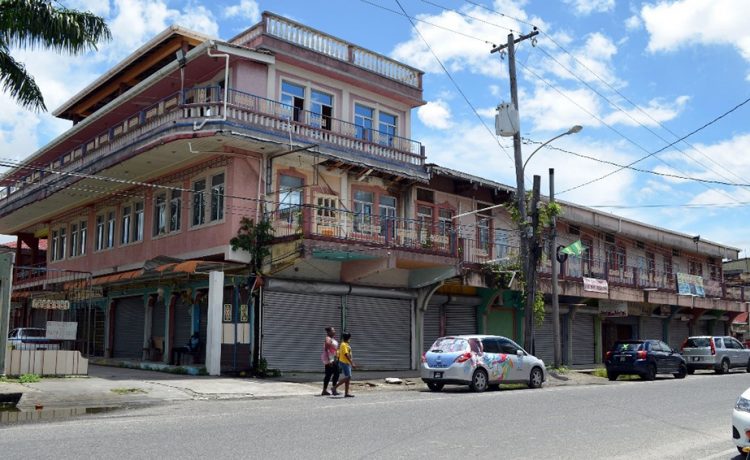As the number of COVID-19 cases continue to rise, business owners in Georgetown, particularly those along Water Street, over the past four months, are facing multiple daily challenges including a decline in sales as they struggle to stay afloat.
Radha Sahadeo, manager of Bhagwan’s Clothing Store, spoke of the struggles that her business is facing due to the massive decline in sales. “[We aren’t] getting any sales, people ain’t coming in [and] sometimes we don’t get any sales for the day,” she lamented.
Sahadeo detailed that because of the restrictions that were placed on her business which were only recently lifted, the store is only able to operate at 20% of its full capacity, especially since the incurred expenses stand tall over the amount of income obtained. “I can tell you because I [also] do the accounts, we don’t cover the expenses… so in terms of paying salary and so on, it’s like the scrapings.”

Sahadeo went on to explain that because of the restrictions on weddings and other events, persons seem to no longer need clothes but only essentials such as hand sanitisers and masks. “I don’t think that people are interested in buying our products [right now]… even to government organisations who would usually buy five shirts for an employee, they are now buying two shirts per employee so everything cut down.”
The manager hopes that as the country enters the third phase of reopening which allows businesses like hers to recommence operations, customers will gradually return and purchase her products so that her business can emerge from the current slump.
Meanwhile at Oriental General Store, Christina Parsan said that the restrictions placed on her hardware business have come with both pros and cons. She explained that due to the lockdown, her business was forced to invest more heavily in the online platforms to be able to showcase their products and make transactions. “What we did was become proactive by creating a website and linked it to our Facebook since we are very visible [there].”
Parsan highlighted that because of the alternative type of shopping that her company has provided over the past four months, systems such as “cash on delivery” were implemented so as to have minimal contact and physical interaction with customers to protect the well-being of her employees.
Additionally, Parsan indicated that for four months, her main concern was the health of her employees, every effort was made to ensure their safety. “We are only working from 9am to1:30pm. We still aren’t going the full length because we have staff coming from across the river and on the east coast, so our main concern was for our staff who would have to travel in public transportation and risk their health as well as their families.”
Parsan noted that the restrictions initially placed on the operations of the business by the National COVID-19 Task Force caused the salaries of employees to be decreased by half, as they could not afford to operate at full capacity.
The representative of the store said that the use of the alternative online shopping option has attracted younger shoppers, as she believes that older folks are still not au fait with this shopping method. She also believes that this may be a contributing factor to the decline in sales that the business has seen. “I think to help the website run as we want it to, there will need to be a change of mindset with people. Young people are more buying online, but the older folks want to see and touch and check and all that,” she opined.
Parsan explained that the factory which builds and designs the furniture that is sold in the general store also saw a massive reduction in productivity as they have to now work under a shift system. “In a factory, you can’t have 25 workers in there at the same time, so now they have to work in a shift system… so now they have the builders coming in one day, the finishers another and the sprayers another… so we had to switch it in that way [so] it slowed down production.”
Parsan is somewhat still doubtful that business will ever return to normalcy since many are still fearful of the existential threat that the virus poses. “I don’t know if we will ever get back to that place where we were [because] people still don’t want to come out,” she explained.
Many stores along Water Street still remain closed as they have not yet received permission to reopen their doors, while those who were open, opted to attend to customers outside of the store in an effort to avoid people from entering the store’s space.






